- Home
- Brian Lumley
The Source Page 7
The Source Read online
Page 7
The head and hands changed, underwent a swift metamorphosis, became manlike. An almost human face crushed itself to the glass, gazing flatly, almost pitifully out into the room. It grimaced: an expression that was part smile, part scowl, part snarl, and then its human jaws yawned inhumanly open. Inside that mouth was a hell of teeth worthy of some monster piranha!
Jazz stepped back, gasping, and bumped into Vyotsky. The big Russian grasped his shoulders, steadied him. And in the tank the thing’s hands sprouted hooks that scrabbled at the glass; its face collapsed to a black leathery mask with a convoluted snout and huge, hairy pointed ears, like a great bat; webs grew between its limbs and body, forming wings. It sprang high, thudded against the tough glass ceiling of its tank, flopped down on the deep sandy bed.
Jazz was vaguely aware that someone—possibly Khuv, he thought; yes, even Khuv—had murmured, “My God!” In that same moment the thing had elongated into a worm with a spade head, rammed itself head-first down into the sand and burrowed out of sight. There was a final flurry of sand and … all was still.
After long moments of silence Jazz expelled his breath in a great sigh. “Christ almighty!” he said, in a small voice. Then all three men drew air deeply into starved lungs. Jazz closed his gaping mouth, looked at the two Russians. “And you’re telling me this—thing—came out of that ball of light, right?”
Khuv, pale in the bright lights, with eyes that were dark blue blots in his doughy face, nodded. “Through the Gate, yes,” he said.
Jazz shook his head in bewilderment. “But how in hell did you catch it?” It seemed a very reasonable question.
“As you can see,” Khuv answered, “it doesn’t like bright lights. And for all that it can change its shape at will, still it seems very primitive in its mental processes—if it has any worth considering as such. It could be that it’s all sheer animal instinct. We think it probably attacked the Gate on the other side; it would have been night in that world, and the glaringly bright sphere must have seemed like an enemy, or even prey. But when it burst through to our side—into the hollow sphere of rock down there—it was bright as day. Luckily for the people who were there, it headed straight down one of the wormholes—to escape from the light, do you see? And someone had his wits about him sufficiently to put the open end of a steel cabinet over the mouth of the hole. When it tried to come back out it was trapped.”
“How long have you—” Jazz found the greatest difficulty in concentrating on what he was saying, found it almost impossible to take his eyes off the tank, “—had this thing?”
“Eighteen months,” Khuv answered. “This was the third encounter.”
“Of the too close kind,” Jazz had finally got himself together.
“Pardon?” Khuv stared at him blankly.
“Nothing,” Jazz shook his head. “But tell me: what does it eat?” He didn’t know why he’d asked that. Maybe it was the memory of all those teeth, and Khuv’s talk of prey.
Khuv’s eyes narrowed. Not defensively but thoughtfully. He opened the door, switched off the lights and beckoned Jazz and Vyotsky to come out. They went back to the perimeter and Khuv led the way to his own quarters. On the way Jazz asked: “I take it it does eat?”
Khuv remained silent but Vyotsky answered for him: “Oh, yes, it eats. It doesn’t need to, apparently, but it does when food’s on offer. It eats people—or anything else with good red salty guts! Or it would if it could. Its keeper feeds it on blood and offal which is pumped through a tube to it. He knows exactly how much to give it. Too much and it gets bigger and stronger. Too little and it shrivels, hibernates. When they’ve worked out a way to handle it safely, then they’ll try to find out what makes it tick.”
“They?”
“The specialists from Moscow,” said Vyotsky, shrugging. “The people from—”
“Karl!” Khuv stopped him with a word. And Jazz thought: so even though I’m a prisoner, and for all Khuv’s “glasnost,” still there are sensitive areas, eh?
“Specialists,” said Khuv, “yes. If they can find out about it, maybe they’ll also discover something of its world.”
Something else was bothering Jazz. “What about these flame-throwers I keep seeing?”
“Isn’t it obvious?” Vyotsky scowled. “Are you stupid after all, British?”
“Concentrated fire kills them,” said Khuv. “Up to now it’s about the only thing that does. That we’ve discovered, anyway.”
Jazz nodded. Things were beginning to shape up in his head. “I’m starting to see the potential,” he said, drily. “And no need to tell me where your ‘specialists’ come from. The Department for the Study of Chemical and Biological Warfare on Protze Prospekt, right?”
Khuv made no answer. His mouth had fallen aslant in a twisted smile.
Jazz nodded. His own expression was a mixture of sarcasm and revulsion. “And how would that be for a biological weapon, eh?”
They had reached Khuv’s quarters. He opened the door, said: “Would you like a drink, or should I let Karl take you back to your cell and toss you around a little to improve your manners?” His voice crackled like thin ice underfoot. Jazz had touched a tender spot. The British agent was much quicker on the uptake than Khuv had given him credit for.
Jazz looked at Vyotsky’s grinning face, said: “Oh, I think I’d prefer the drink every time.”
“Very well, but try to remember: you are in no position to criticize anything. You are a spy, a murderer, a would-be saboteur. And remember this, too: you don’t know everything. We don’t know everything! Weapons? Like … like that? Personally I would rather close the place down, concrete it in, lock the Gate shut forever—if that’s at all feasible. So would Viktor Luchov. But the Projekt was sponsored—indeed it was ordered —by the Defence Agency. We don’t control anything, Michael, but are ourselves controlled. Now make up your mind: we can be ‘friends,’ or I can have someone else, someone a lot less sympathetic, complete your briefing. It’s up to you.”
Briefing? For some reason Jazz didn’t like the way Khuv had used the word. A slip of the tongue, obviously. Briefing didn’t really apply here, did it? Why are you being given the treatment? a voice asked in the back of his mind. What’s in it for them? He didn’t have the answers and so put the question aside, said:
“OK, I accept that. We all do what we have to. We all have our orders. But just answer me one more thing and after that I won’t interrupt you again.”
Khuv ushered Jazz and Vyotsky into his living area. “Very well,” he said, “what is it?”
“That thing in the glass tank, your intruder from another world,” Jazz wrinkled his nose in disgust. “You say it has a keeper? Someone who looks after it, feeds it, studies it? It’s just that I can’t imagine what kind of a man he would be. He must have nerves of steel!”
“What?” Vyotsky gave a snort that was half-way a laugh. “Do you think he volunteered? He’s a scientist, a small man with thick spectacles. A man dedicated to science—also to the bottle.”
Jazz raised an eyebrow. “An alcoholic?”
Khuv’s expression didn’t change. “Very soon,” he said after a moment’s pause. “Yes, I’m afraid he will be …”
Three hours later, at about 7:30 P.M.—after Jazz had had delivered to him in his cell a cup of tepid, flavourless coffee and a cold meat sandwich, standard evening fare, and after he’d consumed both—he lay on his back on his metal army bed and yet again turned over in his mind all the facts Khuv had given him. The Russian had talked almost nonstop for an hour and a half, during which time the British agent had remained true to his word and had not once interrupted him. Once Khuv was underway Jazz hadn’t wanted to stop him anyway, partly because the Russian’s flow of words and images had been smooth and required no deep explanation, but mainly because his story had been completely fascinating.
And now, yet again, Jazz recapped:
The Perchorsk Incident or “pi” had been the disastrous test run of Franz Ayvaz’s sub-atomic s
hield. After that mess, cleaning up had almost been completed when “Pill” happened, which Khuv referred to as Encounter One; but from what the KGB Major had told Jazz, it hadn’t been so much an encounter as a downright nightmare!
The—creature?—which had come through the sphere of light on that occasion had been … well, it had been the monstrosity Jazz had seen on the film shot by the AWACS reconnaissance aircraft over the Hudson Bay, which now he realized was like nothing so much as the Big Brother of the thing in the glass tank. But when Big Brother had squeezed its bulk into this world from its own …
Khuv’s description of Encounter One as he himself had heard it from people present at the time had been graphic:
“You’ve seen it, Michael, on that film you told us about. You know what it was like. Ah, but that was only after it had escaped through the shaft into the ravine and got itself airborne! On the ground it had been far worse; oh, yes, and I’ll tell you about it from first-hand accounts! First, however, I’ll try to explain how the Gate works. Or I’ll describe what happens when it works. The ‘skin’ of the sphere—its ‘surface’ as we see it—is in itself a contradiction of physics as we understand that science. Viktor Luchov has likened it to an ‘event horizon.’ We see things on it after, and even in advance of, any given event! In the former case as a sort of retinal after-image printed in the sphere, and in the latter as a gradual emergence until the—whatever—breaks through.
“They actually saw that thing coming—but they didn’t know what they were seeing! Remember, it was the first. They saw it in the sphere: a gradual darkening of part of the surface up near the sphere’s dome. The dark patch became a shape, the shape a sort of misty three-dimensional picture, and the image—in a little while—reality. They saw the head and face of a bat four or five feet across: like a hologram but slowly, oh so slowly, changing. It was all in slow-motion, a fascinating thing to witness. So they thought. The wrinkling of the convolute snout, which perhaps took half a minute; the leaning forward of the ears—a flicker of motion in real-time—lasting all of five seconds; the baring of the needle teeth, each one of them six inches long, which was accomplished with the speed of a yawn.
“Now think of it: they had guns! There were actually a handful of soldiers down there with weapons—not for any specific purpose, but simply because soldiers sometimes have guns. But who would think to shoot at such a thing, eh? After the fact, maybe—but at the time? Listen to me: do we shoot off guns at pictures on a screen? That was what this was like, a 3-D film.
“Also, Viktor Luchov was there. Do you think he would have let them shoot at it? Not a chance! He didn’t even know what the sphere was yet. But … it might well be his redemption! In Franz Ayvaz’s absence he had still to answer for the Perchorsk Incident, and now out of nowhere this … phenomenon!
“Its clarity had been improving for about an hour. All the misty edges had firmed up until the image had the brilliance of a TV picture. People had run to fetch cameras and were actually filming it, like tourists filming ancient monuments or views of outstanding beauty! After all, they knew it couldn’t be real. What? A bat with a head as huge as an elephant’s?
“Then—quite suddenly, without warning—the impossible happened. They realized that the snout had pushed through the ‘skin’ of the sphere. The monster was no longer just an image on a screen. It sniffed, inhaled sharply several times—and in the next instant the nightmare was upon them!
“The event horizon slows things down, Michael. But once the Gate is breached, then all reverts to normal. But ‘normal’ for that obscenity was total hell for the people face to face with it! I say it sniffed—a huge bat sniffing its prey—and it scented them! And it changed! The face and head that came through the skin were those of a vast wolf. You saw the thing in the tank metamorphose? It was like that, the very same. The giant wolfs head came through, and then its shoulders—but pushing them forward was a leathery bat’s body, and great bat wings unfurling as wide as the sphere itself!
“Panic? There was such panic as men rarely experience in a lifetime. And to make it worse, the thing didn’t come into this world silently but screaming. Ah, and what a voice it had!
“It came howling its rage at the bright lights, its hunger for the blood it had scented, its fear of an alien environment. And it slew. But while it was doing this, still it continued to emerge from the sphere. Now the rear end of the thing was like a vast centipede, stampeding through the Gate and threshing everywhere. It changed endlessly, became a dozen different hybrids in as many moments, and each and every one of them murderous!
“It snapped cables in its blind blundering—blind, yes, for it couldn’t bear the lights. And a mercy it was blind, for if not the carnage would have been that much worse. But as it damaged the power supply many of the lights failed and its vision improved accordingly. Now it picked its victims with more deliberation, and devoured them whole with a deal more dexterity.
“But now, too, the soldiers were shooting at it—those with the nerve for it, anyway. They couldn’t tell if their bullets hurt, but the massed gunfire certainly alarmed it. It headed for the darkest place it could find: the dimly lighted shaft, of course. By now it had changed into something very like the squirting squid-like thing your AWACS air-crew filmed. Vast—amazingly vast—it squeezed and squirted its way through the magmass levels. Indeed, in the way its plastic body flowed it was not unlike the magmass; and as it went so it put out extrusions with mouth and with eye and with … oh, appendages for which there is really no description. Imagine a leg sprouting from its side, and then the leg itself becoming a scuttling spider-thing, and you may have some idea of what I’m talking about.
“But finally it was out into the ravine, and in its wake a trail of death and destruction filled with the screams of the dead and the dying, and the empty spaces which were all that remained of those who had vanished forever. For a second time the Perchorsk Projekt was a shambles, and somewhere in the world outside that monstrosity was on the loose and rampaging. And no one had the faintest idea what to do about it.
“If we Russians have faults, Michael, they are these: we tend to be too well regimented in our thinking, and we are not accustomed to failure. So that when things go disastrously wrong we stand stunned, uncomprehending, like small children waiting for Mama to tell us what to do next. It was like that for Khruschev when Kennedy faced him down, and again for the—shall we say—‘responsible authorities’ over that stupid affair of the Korean airliner. If there are any more disasters in the offing, it will doubtless be the same all over again—just as it was here at Perchorsk.
“Eventually the military were alerted, and they in turn told Moscow. But can you imagine the reaction? ‘What? Something has got loose from Perchorsk in the Urals? What sort of something? What are you talking about?’ But at last Migs were sent up from Kirovsk, and the rest you already know. Indeed, you know more than I do about that part of it! But at least I know why the Russian fighters failed while the USAF planes succeeded. We’ve learned that much from the other … encounters. It’s the reason for the flamethrowers.
“That’s right: the American aircraft were equipped with experimental Firedevil air-to-air missiles which not only explode on impact but hurl searing flames all about. Less bulky than napalm but ten percent more effective. That is what stopped that thing over the Hudson Bay—fire! Fire and light—sunlight! Until the American fighters contacted it, the thing had flown through or under fairly dense cloud cover, and the sunlight wasn’t strong yet. But as the sun rose so the creature descended, seeking protection for itself. They are cold things, Michael, and they are things of darkness.
“You’ve described what you saw on that AWACS film: clouds of vile gasses boiling off the creature’s surface in the bright sunlight, and the way its vast, flattened, airfoil body shrank from the sun. Ah, yes! It wasn’t so much that the Migs failed, but that other, natural forces assisted the Americans in their success. The thing was half-beaten before it met the Ameri
cans, and their Firedevils finished it off.
“Well, and that was the end of Encounter One …
“Now a sort of anticlimax: Encounter Two was a wolf!
“It came through in just the same way as the first thing, but by comparison it was so small—and so normal—that it almost went unnoticed. But not quite. A soldier spotted it first, put a bullet in it the moment it came limping through the Gate. That stopped it, but not fatally. It was examined, but oh so cautiously, and found to be … a wolf! It was old, mangy, almost blind and close to starving. They saved its life, caged it, fed and cared for it and subjected it to every test in the book. Because they weren’t quite sure they could trust it, do you see? But … it was a wolf. In every respect a brother of the creatures which even today hunt in the great forests of these parts. By the time it died nine months ago, of old age, the animal was quite tame.
“And so they thought: perhaps the world on the other side isn’t so very different from this one after all. Or: perhaps this gateway we’ve opened leads to many other worlds. Viktor Luchov thinks that as a physical phenomenon—or as a phenomenon of physics—it lies somewhere between a black hole and a white hole. Black holes sit out in the deeps of space and gobble up worlds, and not even light can escape from their fantastic gravitational attraction; white holes are the theoretical melting pots that give birth to galaxies; both are gateways to and from other space-times. Likewise our sphere of white light—but not nearly so violent! Which is why Luchov calls it a ‘grey hole,’ a gateway in both directions!”
At this point Khuv had held up a warning hand. “Don’t break the thread now, Michael, for we’re doing so well. You can ask your questions later.” And when Jazz had relaxed again:
“Myself, I’ve no interest in the ‘holes’ of advanced physics theory—I simply call it a monstrous threat! But that aside …
“You’ve seen Encounter Three and I’ve told you about it. As for Four: that was another anticlimax, but not quite so ordinary or acceptable as the wolf. It was a bat, order Chiroptera, genus Desmodus. Strangely, Vampyrum is the false vampire, while Desmodus and Diphylla are the true blood-suckers. This one had a wing-spread of point seven of a metre: quite a large one of its species, I’m told, but by no means a giant. It was seen coming well in advance, of course, and no chances were taken with it. As it emerged, in that self same moment, they shot it dead. But just as the wolf was a true wolf, so the bat was a true bat. Curiously, the vampire bat is a creature of South or Central America. Perhaps our grey hole was a gateway not only to other worlds but also to other parts of this world.

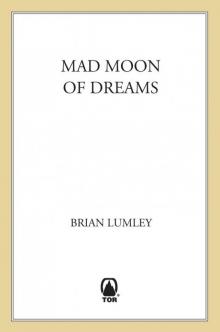 Mad Moon of Dreams
Mad Moon of Dreams Psychosphere
Psychosphere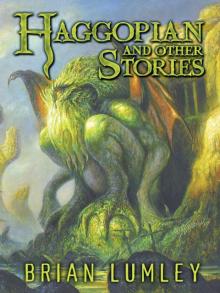 Haggopian and Other Stories
Haggopian and Other Stories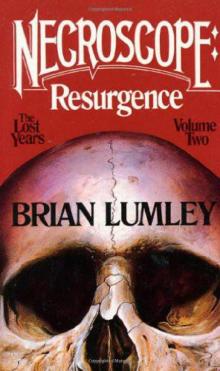 Resurgence_The Lost Years_Volume Two
Resurgence_The Lost Years_Volume Two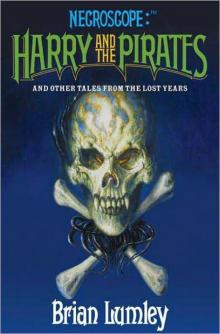 Necroscope: Harry and the Pirates: And Other Tales From the Lost Years
Necroscope: Harry and the Pirates: And Other Tales From the Lost Years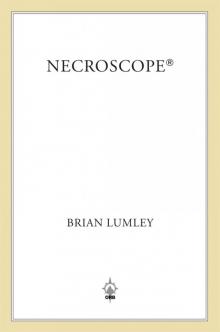 Necroscope®
Necroscope®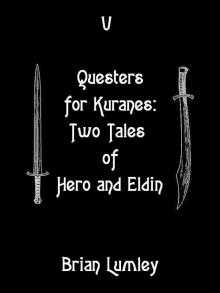 Dreamlands 5: Questers for Kuranes: Two Tales of Hero and Eldin
Dreamlands 5: Questers for Kuranes: Two Tales of Hero and Eldin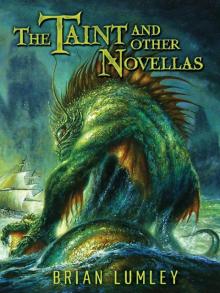 The Taint and Other Novellas: Best Mythos Tales Volume 1
The Taint and Other Novellas: Best Mythos Tales Volume 1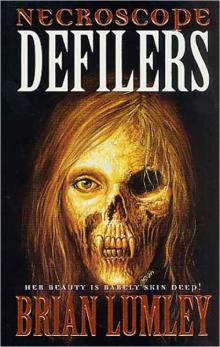 Necroscope: Defilers
Necroscope: Defilers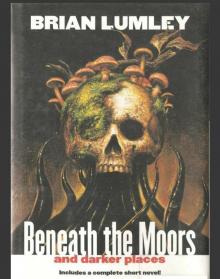 Beneath the Moors and Darker Places
Beneath the Moors and Darker Places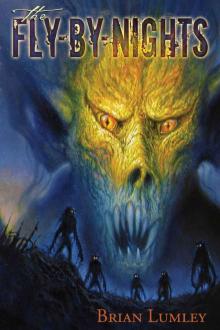 The Fly-By-Nights
The Fly-By-Nights Khai of Khem
Khai of Khem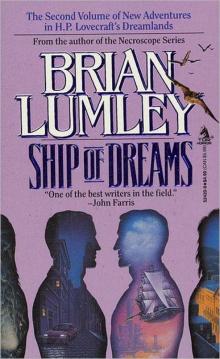 Ship of Dreams
Ship of Dreams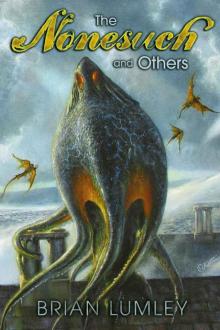 The Nonesuch and Others
The Nonesuch and Others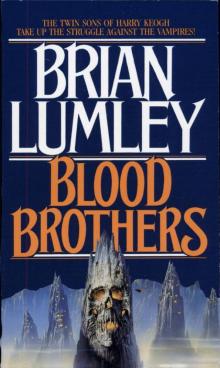 Blood Brothers
Blood Brothers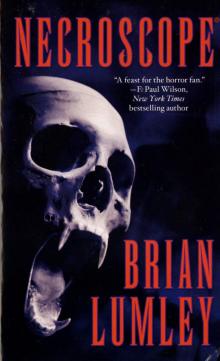 Necroscope
Necroscope The Burrowers Beneath
The Burrowers Beneath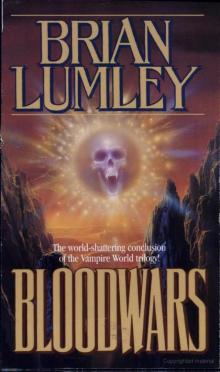 Bloodwars
Bloodwars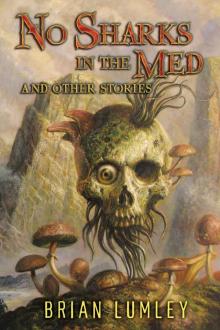 No Sharks in the Med and Other Stories
No Sharks in the Med and Other Stories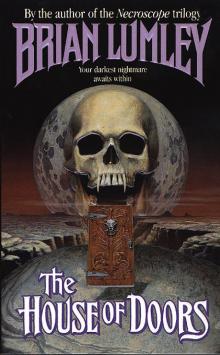 The House of Doors - 01
The House of Doors - 01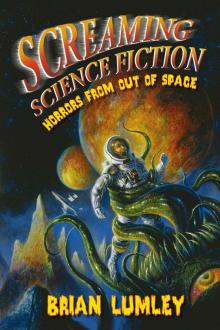 Screaming Science Fiction
Screaming Science Fiction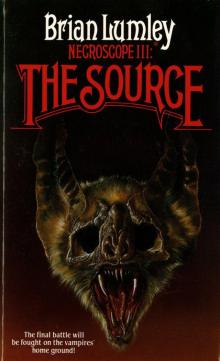 Necroscope III: The Source
Necroscope III: The Source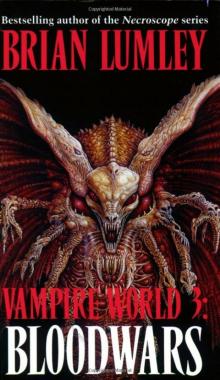 Vampire World I: Blood Brothers
Vampire World I: Blood Brothers Iced on Aran
Iced on Aran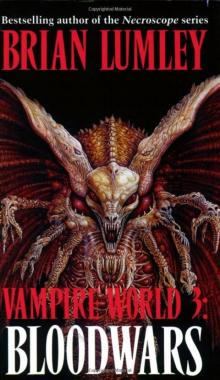 Necroscope: Invaders
Necroscope: Invaders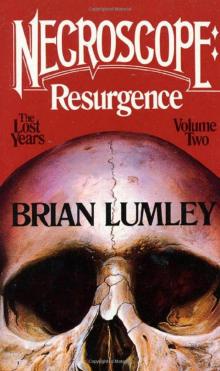 Necroscope: The Lost Years
Necroscope: The Lost Years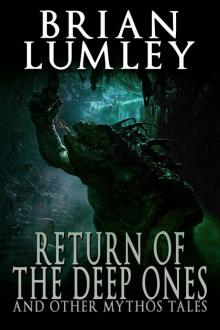 Return of the Deep Ones: And Other Mythos Tales
Return of the Deep Ones: And Other Mythos Tales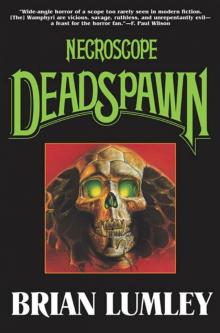 Necroscope V: Deadspawn
Necroscope V: Deadspawn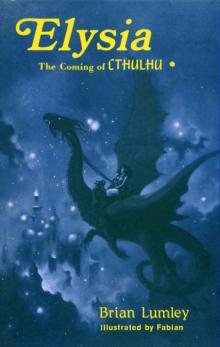 Titus Crow, Volume 3: In the Moons of Borea, Elysia
Titus Crow, Volume 3: In the Moons of Borea, Elysia Hero of Dreams
Hero of Dreams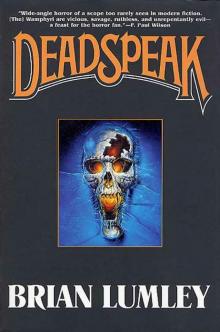 Necroscope IV: Deadspeak
Necroscope IV: Deadspeak The Last Aerie
The Last Aerie The Second Wish and Other Exhalations
The Second Wish and Other Exhalations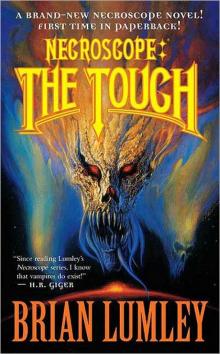 Necroscope: The Touch
Necroscope: The Touch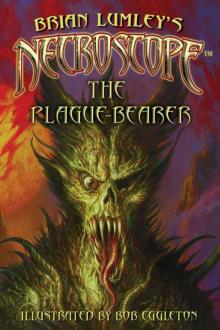 Necroscope: The Plague-Bearer
Necroscope: The Plague-Bearer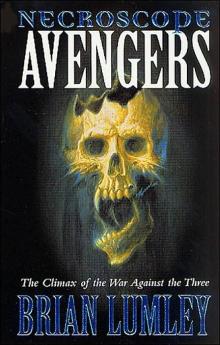 Necroscope: Avengers
Necroscope: Avengers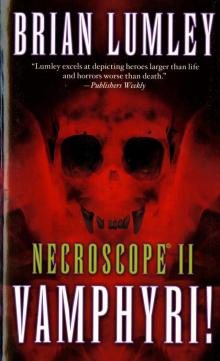 Necroscope II: Wamphyri
Necroscope II: Wamphyri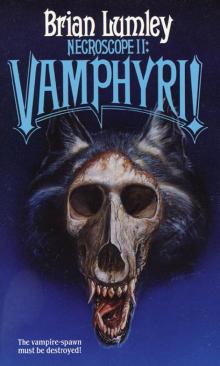 Necroscope II_Vamphyri!
Necroscope II_Vamphyri!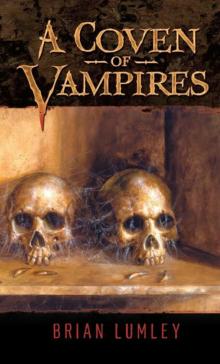 A Coven of Vampires
A Coven of Vampires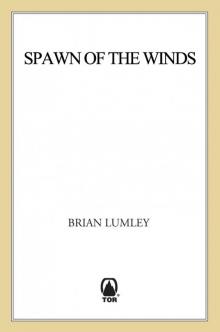 Spawn of the Winds
Spawn of the Winds Sorcery in Shad
Sorcery in Shad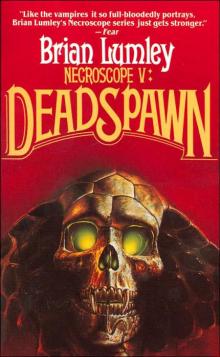 Deadspawn
Deadspawn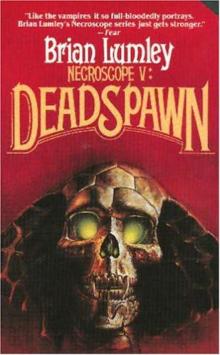 Necroscope V: Deadspawn n-5
Necroscope V: Deadspawn n-5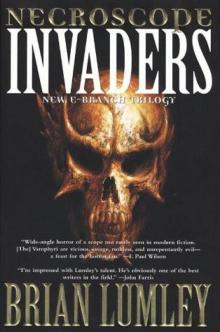 Necroscope: Invaders e-1
Necroscope: Invaders e-1![Beneath the Moors and Darker Places [SSC] Read online](http://i1.bookreadfree.com/i/03/20/beneath_the_moors_and_darker_places_ssc_preview.jpg) Beneath the Moors and Darker Places [SSC]
Beneath the Moors and Darker Places [SSC]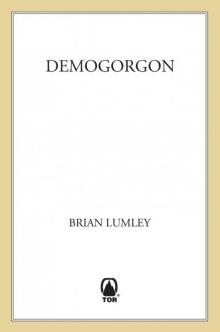 Demogorgon
Demogorgon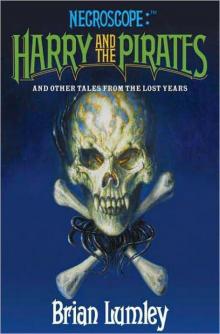 Harry and the Pirates_and Other Tales from the Lost Years
Harry and the Pirates_and Other Tales from the Lost Years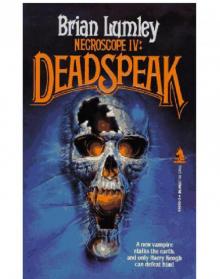 Necroscope IV: Deadspeak n-4
Necroscope IV: Deadspeak n-4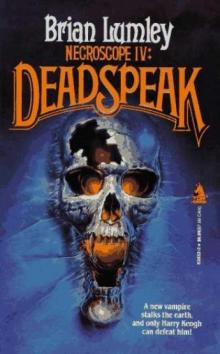 Deadspeak
Deadspeak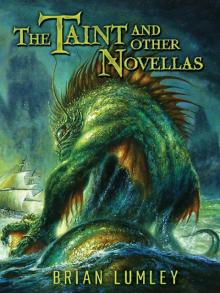 The Taint and Other Novellas
The Taint and Other Novellas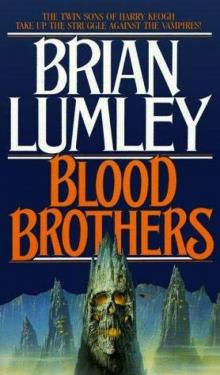 Blood Brothers vw-1
Blood Brothers vw-1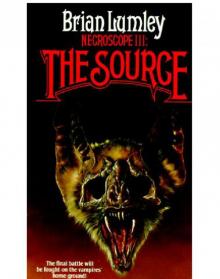 The Source n-3
The Source n-3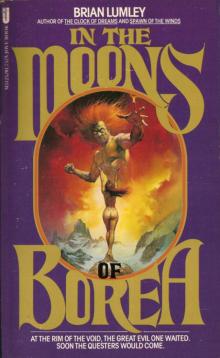 In the Moons of Borea
In the Moons of Borea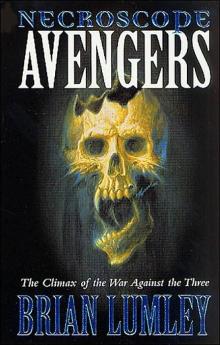 Avengers
Avengers Necroscope n-1
Necroscope n-1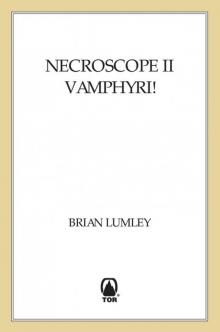 Vamphyri!
Vamphyri!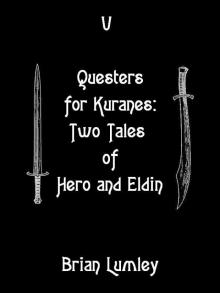 Questers for Kuranes: Two Tales of Hero and Eldin
Questers for Kuranes: Two Tales of Hero and Eldin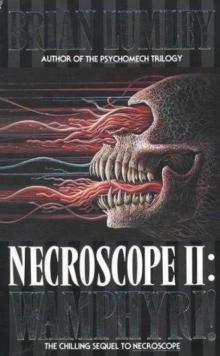 Necroscope II: Wamphyri! n-2
Necroscope II: Wamphyri! n-2 The Source
The Source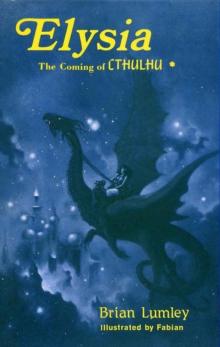 Elysia
Elysia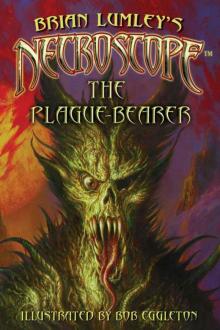 The Plague-Bearer
The Plague-Bearer The Touch
The Touch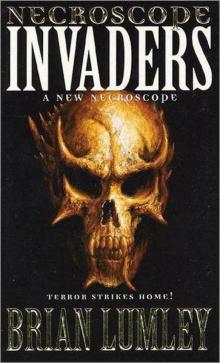 Invaders
Invaders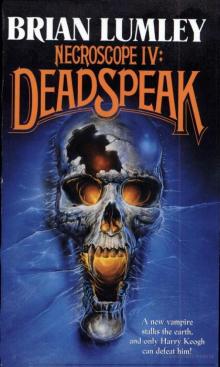 Necroscope 4: Deadspeak
Necroscope 4: Deadspeak Compleat Crow
Compleat Crow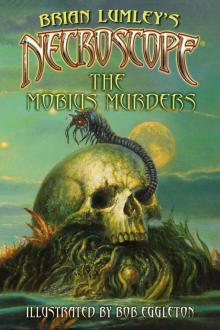 The Mobius Murders
The Mobius Murders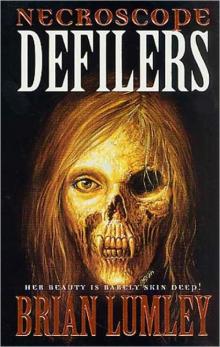 Defilers
Defilers